Scotland vs England: Five things we learned as Harry Kane saves Three Lions' blushes after dramatic ending
Scotland 2 England 2: A pair of Leigh Griffiths free-kicks looked to have won it for the hosts before England's captain for the day stuck to earn a share of the points
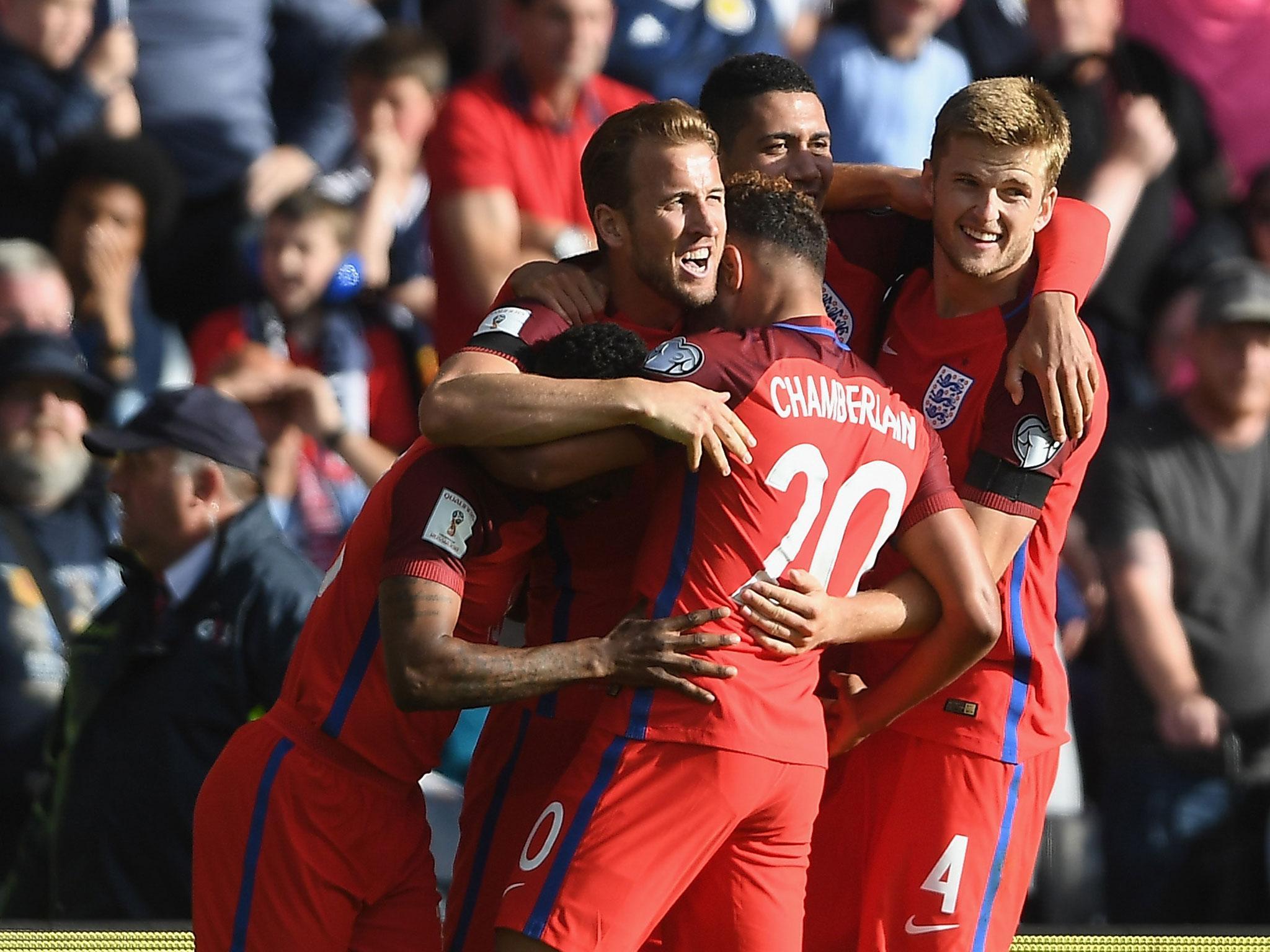
Your support helps us to tell the story
From reproductive rights to climate change to Big Tech, The Independent is on the ground when the story is developing. Whether it's investigating the financials of Elon Musk's pro-Trump PAC or producing our latest documentary, 'The A Word', which shines a light on the American women fighting for reproductive rights, we know how important it is to parse out the facts from the messaging.
At such a critical moment in US history, we need reporters on the ground. Your donation allows us to keep sending journalists to speak to both sides of the story.
The Independent is trusted by Americans across the entire political spectrum. And unlike many other quality news outlets, we choose not to lock Americans out of our reporting and analysis with paywalls. We believe quality journalism should be available to everyone, paid for by those who can afford it.
Your support makes all the difference.Harry Kane’s stunning late equaliser won England a point in the latest renewal of football’s oldest international rivalry.
In a game played out in front of a raucous sell-out at Hampden, the football on offer rarely matched the off-field intensity but the injection of Oxlade-Chamberlain’s fresh legs for the last 25 minutes had looked enough to steal all three points when neither side had deserved it.
The Arsenal midfielder fortuitously came up with the ball in the penalty area and smashed home with his left foot after Scotland had failed to clear.
But Scotland equalised when Griffiths curled home a left-footed free kick from some 25 yards to send Hampden wild. Two minutes later he repeated the trick in the other corner of Joe Hart’s net to cap an incredible comeback.
Yet with Scotland’s fans still revelling in the prospect of victory, Kane popped up in injury time to salvage England a point and provide the latest turn in a barely credible ending.
But what did we learn? Ed Malyon was at Hampden Park…
1. This meant so much more to Scotland
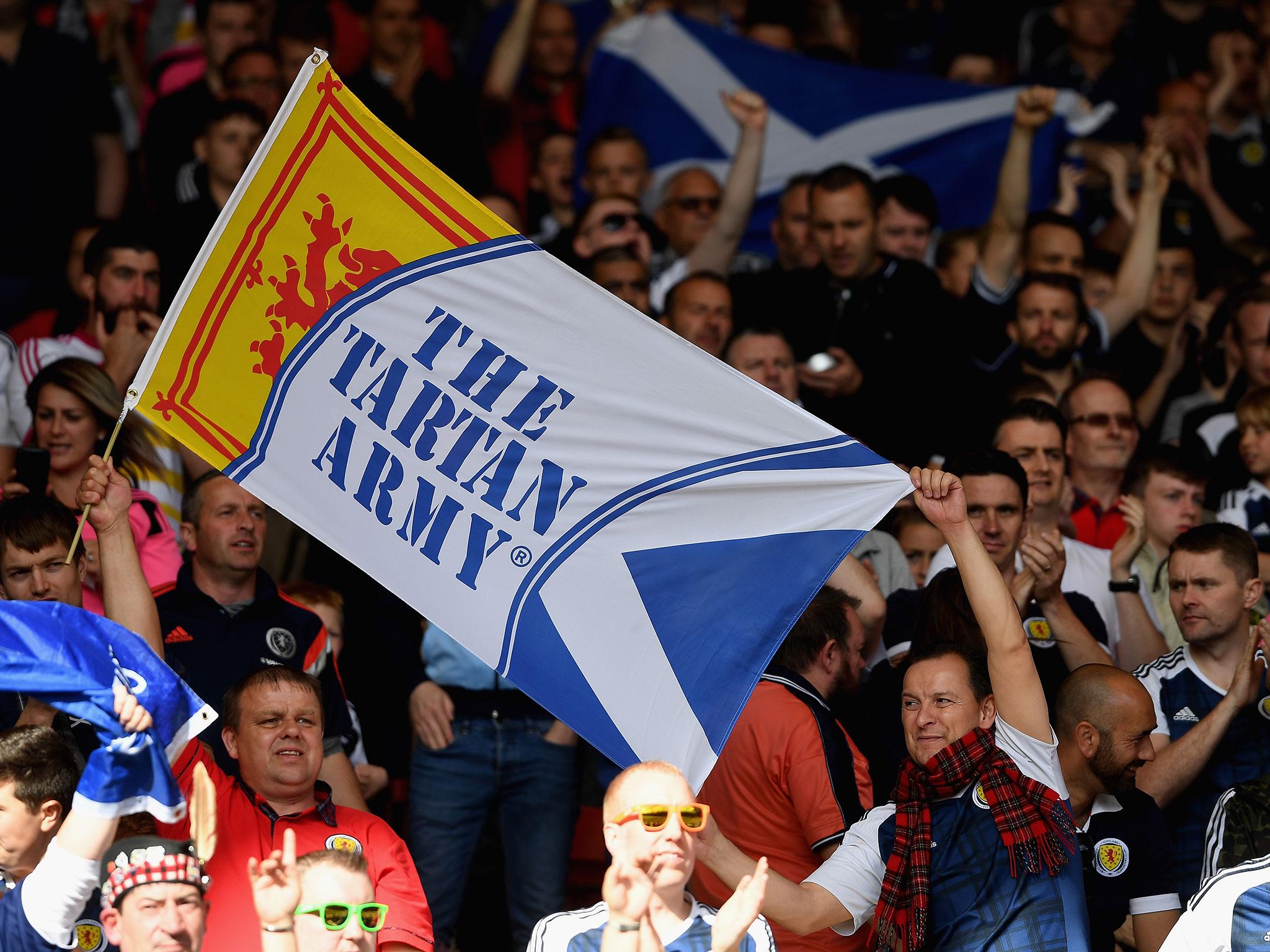
In pure footballing terms, a win here was so much more important to the hosts than it was to England. Granted, a draw against one of the group’s lesser lights wouldn’t have been great for the table-topping English but it wouldn’t have been the end of the world.
For Scotland, defeat would have been the end of the World Cup - to all intents and purposes - and likely the end of Gordon Strachan’s reign. More on that later.
But everything pre-match made it clear that this was more than a game to the Scots. The auld enemy in town, a packed-out stadium, well-oiled crowd, thousands of kilts, hundreds of bagpipes and miles of tartan fabric. It was raw and it was loud, it was unmistakably a game they have been waiting for, England at home but not just a friendly, something with meaning.
The decibel level, the flailing arms and the flying bodies all bore testament to that when Griffiths’ free kicks sailed home and took the roof off Hampden Park. Twice.
2. Holidays are little excuse for England’s flatness
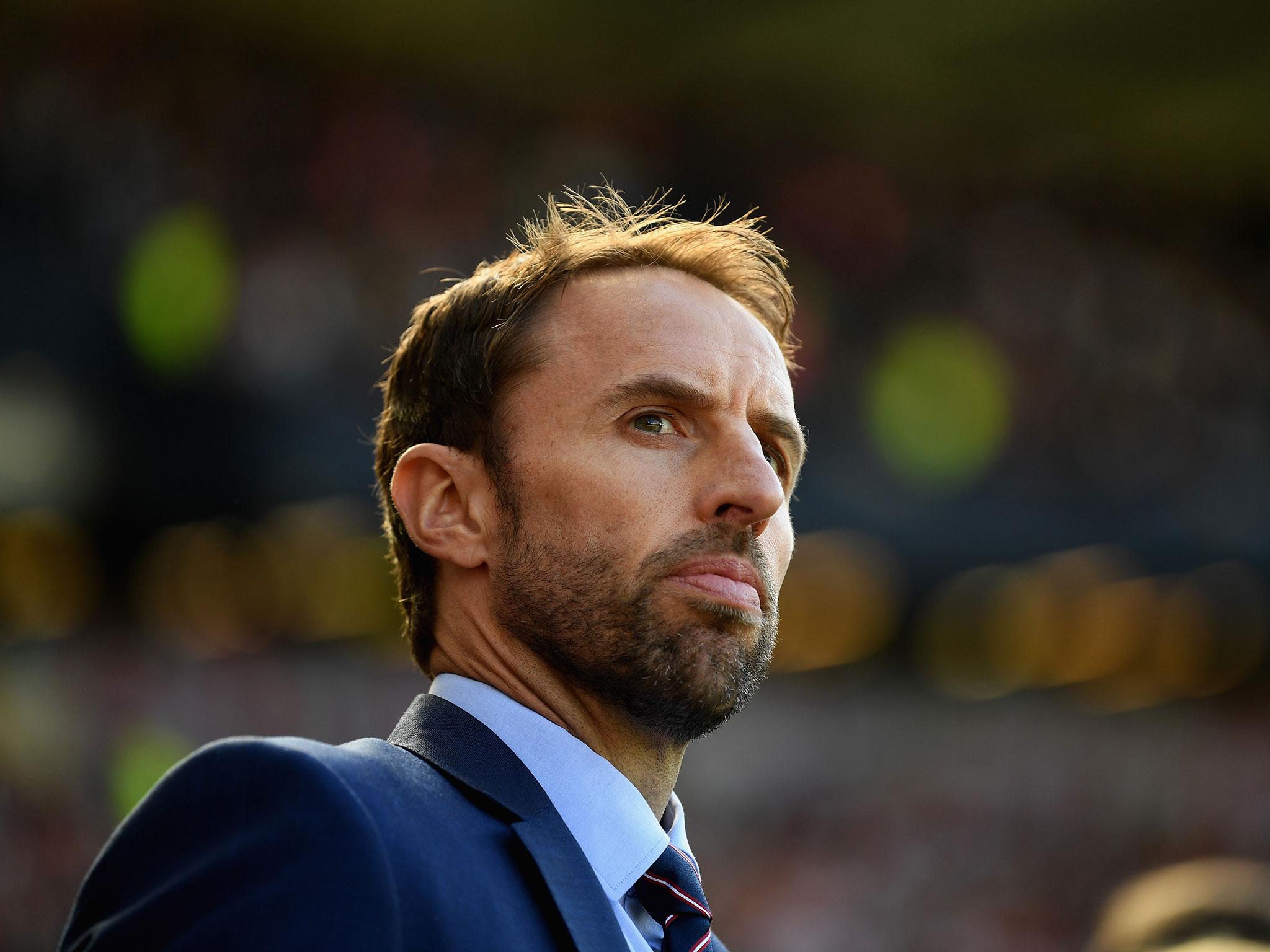
The timing of these internationals is, if you talk to any players, pretty unpopular. Off the back of a hard season where some have played 50-60 games, it is taxing to effectively be hauled back from your holidays for an World Cup qualifier when your team is coasting towards Russia.
That showed in some of England’s play, and they were uninspiring to say the least. Scotland, though obviously the inferior technical outfit, were thundering into tackles from literally the first kick seconds, when Leigh Griffiths hared after the kick-off and charged down a long ball, causing Hampden to explode once more into raucous cheer.
Scotland, holidays or not, were fully prepared and raring to go in this fixture in a way that the England players never seemed to be. Effort and industry is rarely a substitute for quality, of course, but this was a game where it served as a leveller of sorts.
England had the better chances after Scotland’s intensity afforded them some breathless opening minutes, but a goalless first half was devoid of any real quality, which was England’s only trump card in a game where they faced a hugely partisan crowd and a team stoked with the fire of patriotism.
The second half saw Scotland dare to play on the front foot, exciting a crowd that barely needed such encouragement but not threatening to actually make a dent in the scoreline.
They would end up with just two opportunities to show their technical prowess, both at free kicks 25 yards out in the dying minutes of the game. They buried both, only for Kane’s stoppage-time equaliser to rob them of victory, a sensational finale to a game that had rarely surpassed ‘dreary’ on the boredom scale.
3. England’s central midfield needs attention
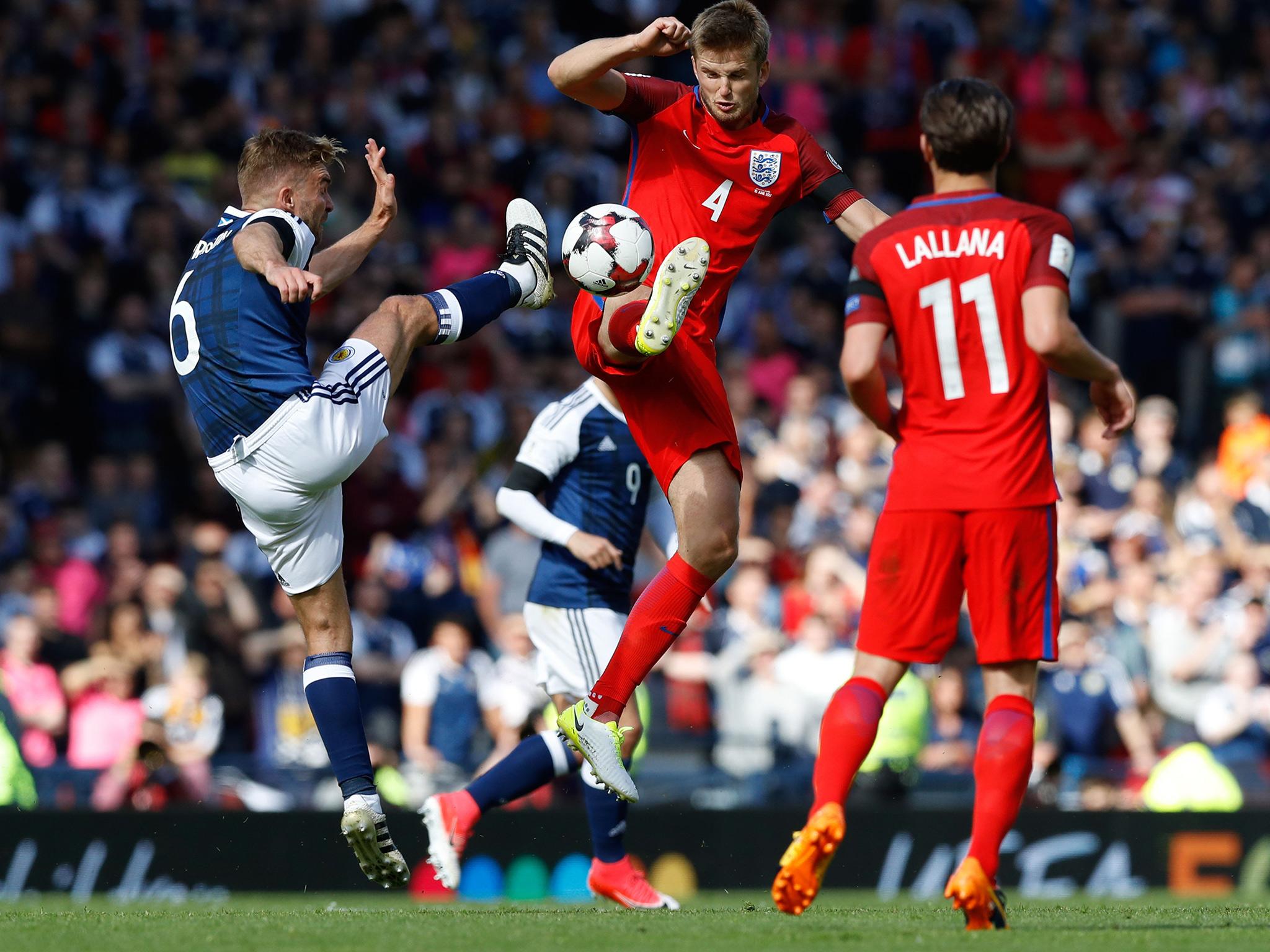
Southgate set England out in a clear 4-2-3-1, with Eric Dier and Jake Livermore holding the midfield.
Livermore wouldn’t necessarily be the most obvious choice to start in the Three Lions’ engine room but when you consider the options to play alongside the more defensively-minded Dier, few obvious candidates emerge.
In a position where you need a player of discipline and positional awareness who can link the back to front, only Danny Drinkwater really stands out and neither he nor Livermore are in the class of their predecessors.
What England would give for someone like Michael Carrick, a rhythmic passer who can help the attacking four to unpick defences. Instead there is an under-the-radar lack of options for this pivot role, which probably explains the national team setup’s obsession with Jack Wilshere, an energetic playmaker who could, if he gets even close to reaching his potential, plug that hole.
Nathaniel Chalobah, Reuben Loftus-Cheek and James Ward-Prowse could possibly grow into the role or Dele Alli may end up more comfortable from deep, but for now they need to find a solution so that superior sides do not exploit that pressure point at major tournaments.
It may indeed prove to be Wayne Rooney’s best chance of an international return.
4. Scotland have no ambition to pair with their industry
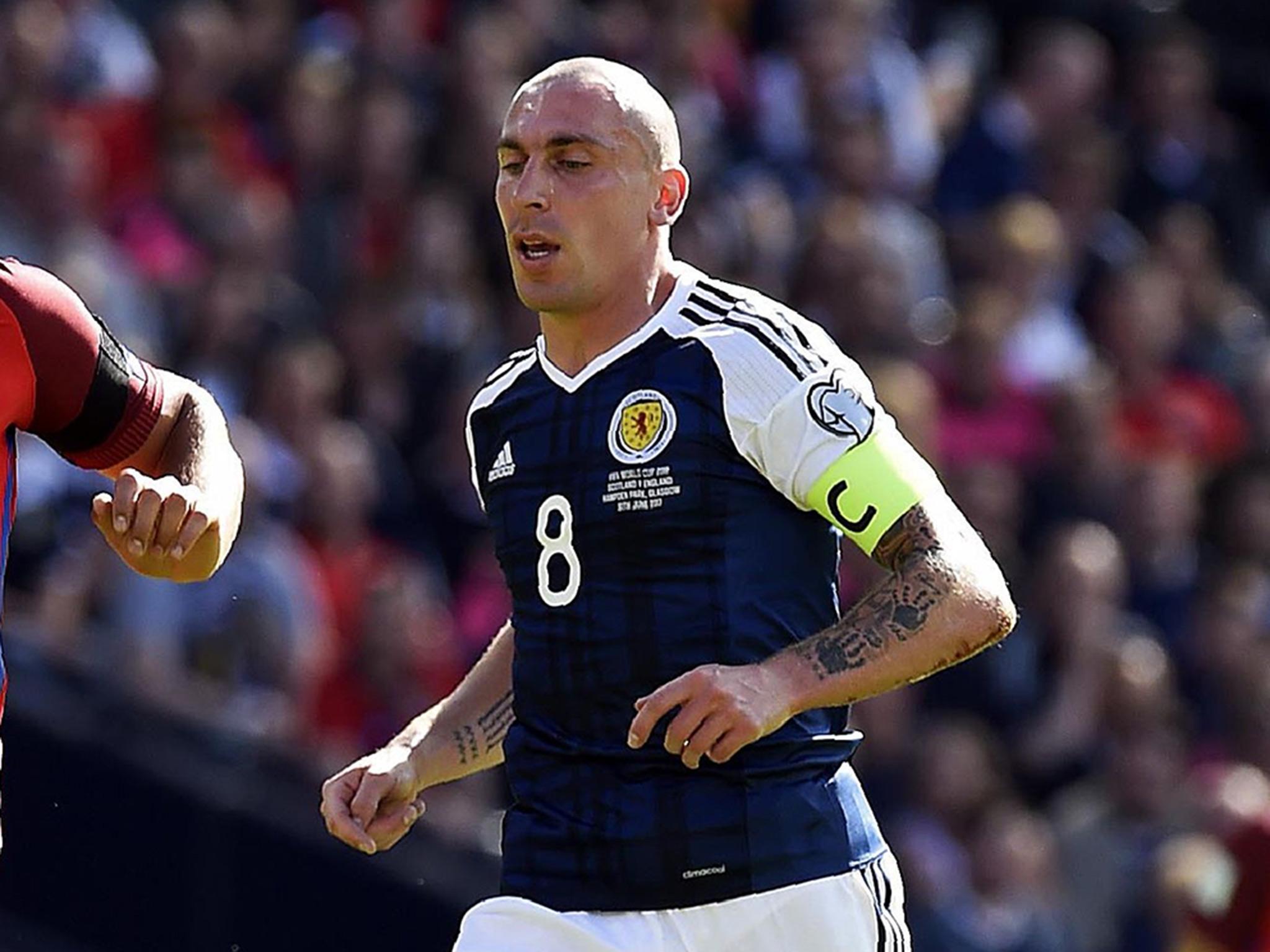
Playing at home against their most-hated rivals, in a must-win game for their hopes of qualification and ending nearly 20 years without making it to a major tournament, Scotland lined up in a 5-4-1 formation that rarely threatened.
It was a lamentable show of cowardice from Gordan Strachan but an all too familiar pattern emerging in international football where defensive pattern work - which is coached far more easily and quickly than intricate attacking play - leans towards conservative gameplanning and play.
This can produce great stories, and it has with the likes of Iceland. But what it meant today was that the most animated the home crowd could get about an attack was when Scotland ‘broke’ into situations where Leigh Griffiths and a teammate were matched up against three or four defenders. Shots being curled off-target from 25 yards out were greeted like heroic efforts that had Joe Hart scrambling, rather than bounding towards the ball-boys for a replacement with which he could get the game restarted.
Strachan’s lineup had, in personnel terms, given him the opportunity to switch to a back four but there seemed little desire from Wee Gord to shake things up until they were already behind.
Two set-piece goals may ultimately save Scotland and Strachan for now, but they are the exception and not the rule. This is a team that needs fresh impetus.
5. Leigh Griffiths’ remarkable double flips the game on its head
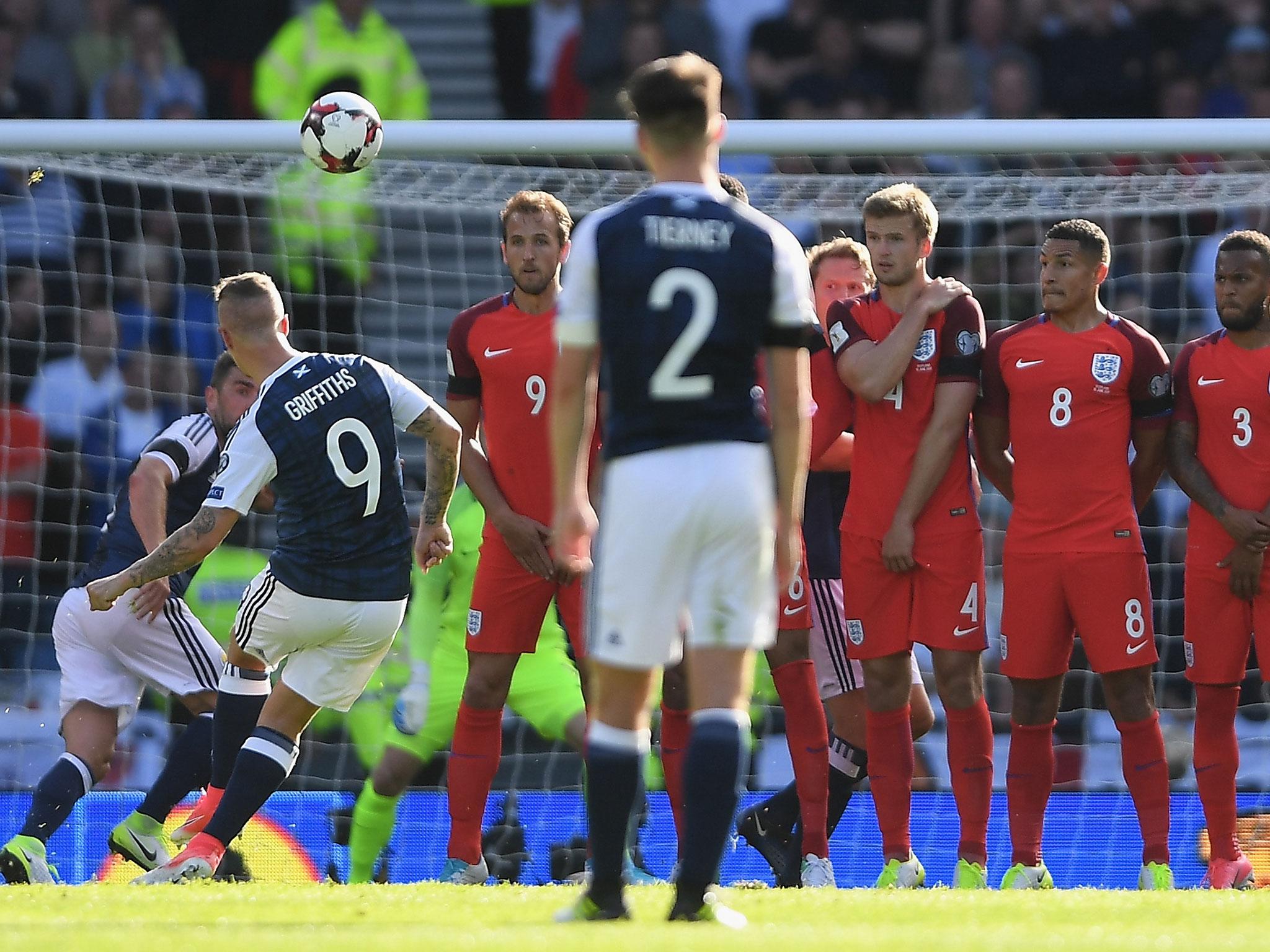
A lacklustre first 65 minutes of this encounter had dragged on, and both managers tried to spark some new life with substitutions. For Scotland, dinky sideman Ryan Fraser came on for Robert Snodgrass in search of an X-factor while Gareth Southgate sent on Alex Oxlade-Chamberlain for Marcus Rashford, who had been almost invisible playing out of position on the right flank.
And while it wasn’t pretty and Scotland’s bizarre string of backpasses played them into unnecessary trouble, Oxlade-Chamberlain’s yard of extra freshness served him well in tight areas as he somehow emerged with the ball inside the penalty area and drove home. Craig Gordon should have done better after adopting a low stance and his flapping hand added to the sense of self-infliction around the goal.
It appeared a fittingly sloppy goal to win a drearily sloppy game, only for Griffiths’ incredible pair of free kicks to send Hampden wild and England into shock.
Fortunately for Southgate, a last-ditch equaliser from Harry Kane won England a point that will at least keep their qualification momentum going. A bonkers finale following a thoroughly mind-numbing 85 minutes of action.
Join our commenting forum
Join thought-provoking conversations, follow other Independent readers and see their replies
Comments